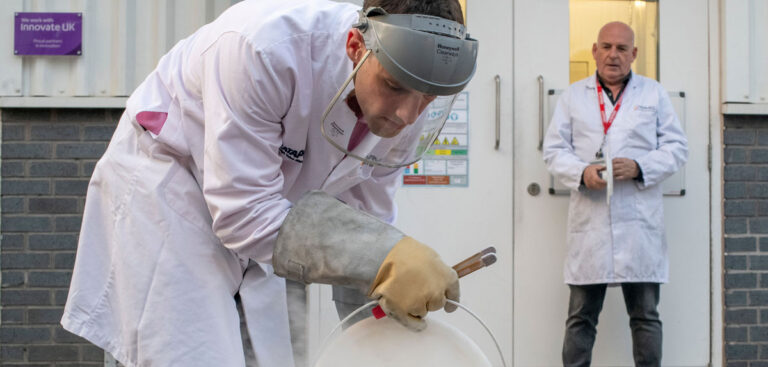Researchers from WMG at the University of Warwick in collaboration with Jaguar Land Rover (JLR) have been able to freeze lithium-ion batteries with liquid nitrogen, allowing cells to be transported without explosion-proof containers.
“Transporting damaged and defective batteries is an expensive and unsustainable process,” said WMG researcher Dr Thomas Grandjean. “However, being able to freeze them with liquid nitrogen could save thousands of pounds and help electric vehicle manufacturers be more sustainable.
Legislation currently dictates that damaged and defective lithium-ion car batteries are transported within an explosion-proof box. And with an explosion-proof box for a Tesla-sized battery costing €10,000 (US$11,000) and a further €10,000 (US$11,000) for the UN accreditation, the ability to freeze batteries would make transportation much cheaper.
“We tested the batteries in the most extreme abuse conditions, such as driving nails through the cells and inducing external short circuits, proving that the freezing process is effective and safe,” added Grandjean.
Explosion boxes are used to contain the battery in case it goes into thermal runaway, but the WMG research found that being able to cryogenically flash freeze the batteries removes the risk of an explosion without reducing the energy capacity or affect cycle or service life.
And while results showed that the batteries will need to be transported at -35°C, the amount of packaging is significantly less than explosion-proof boxes, making the process more sustainable.


